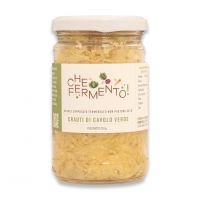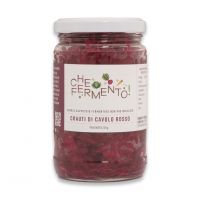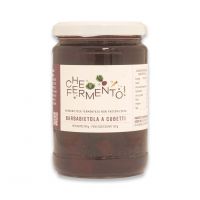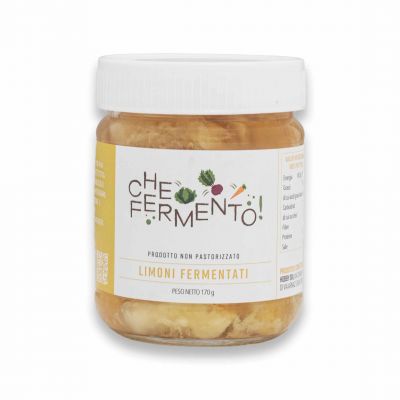
The product
Cetrioli in salamoia
Whole pickled gherkins processed from fresh and preserved in brine
Code:
93363
Country of origin:
Italy
Weight:
Net weight 270 g (Drained weight 140 g)
Minimum order:
1 piece - by reservation only
| Description | Gherkins grown on the farm without any treatment, picked and processed from fresh and then fermented in pickling brine (water and sea salt); they contain no vinegar or milk derivatives |
|---|---|
| Appearance | Small, bright green gherkins |
| Taste | Crispy to the bite, with a pleasant savouriness |
| Curiosity | In the preservation process, an average of 2.5% salt is used on the total weight of the product; when assessing salt intake, it should be considered that vegetables are meant to be eaten in small quantities, to accompany an aperitif or enrich dishes |
| Our selection | We chose the passion and expertise of Elena and Edoardo. It deals with a selection of fermented vegetables: one of the oldest techniques of food preservation, a cultural heritage now being rediscovered for its ability to enhance the taste of vegetables. There are also numerous positive effects on the microbiome and health. All you have to do is put aside all prejudices and give them a try! |
| Suggestions | Slice them to give a crunchy touch to a green or cereal salad, or to flavour a burger |
| Ingredients | Cucumber, water and sea salt |
|---|---|
| Weight | Net weight 270 g (Drained weight 140 g) |
| Packaging | Packaged in a glass jar |
| Storage Conditions (packaged products) | Store the jar in a cool place away from direct light |
| Instructions for use | Once opened store in the refrigerator and consume within a week |
| Nutrition Declaration | Energy: 52 kJ / 12 kcal Fat: 0 g of which saturates: 0 g Carbohydrate: 2,8 g of which sugars: 0,7 g Protein: 0,7 g Salt: 0,61 g Typical value per 100 g |
The producer
Che Fermento! - Rodallo di Caluso (TO) - Piemonte
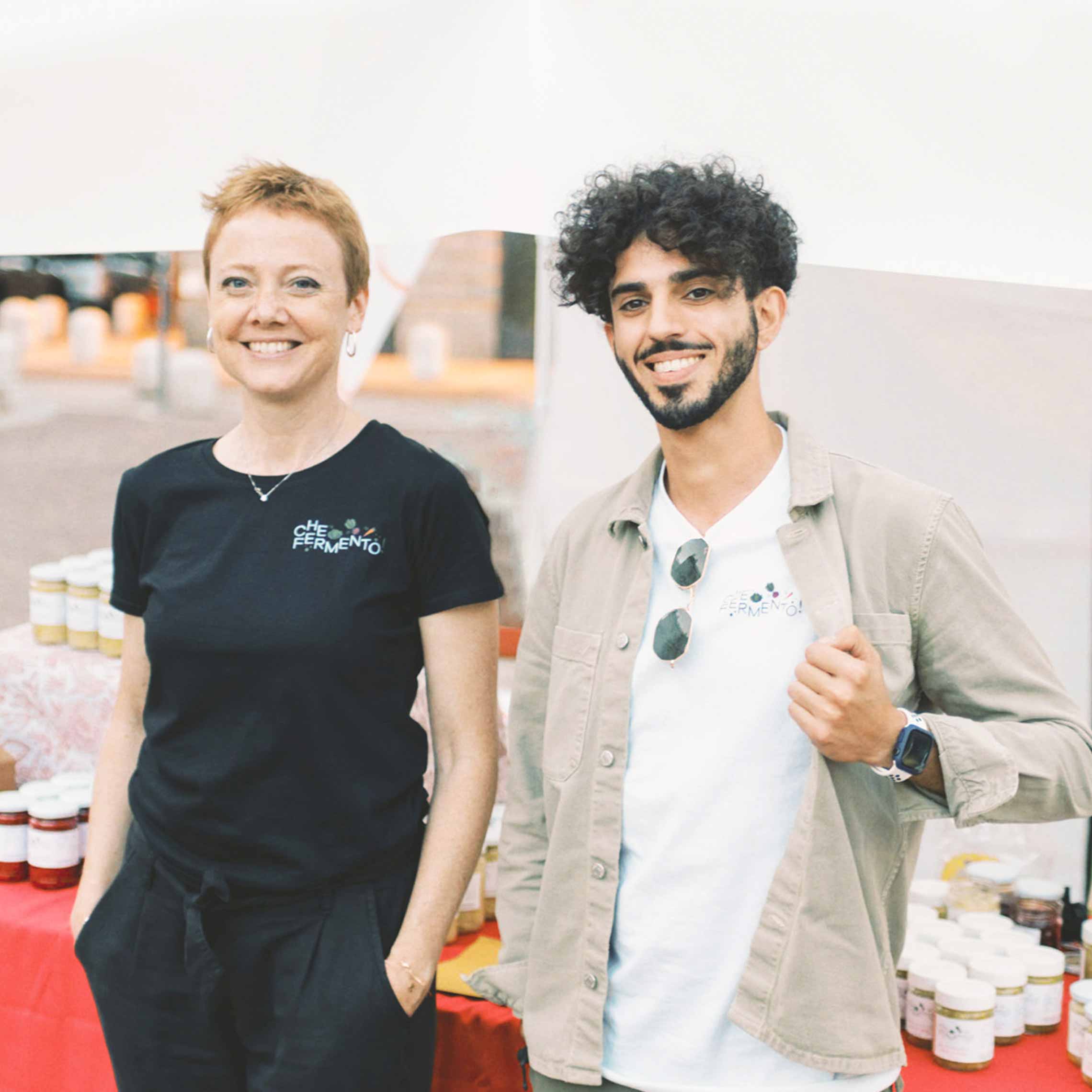
Why we chose them
Che Fermento! tells of the passion and expertise of Elena and Edoardo. The company's focus is fermented vegetables: one of the oldest food
preservation techniques, gradually abandoned after industrial development. A rich cultural heritage now being rediscovered for its ability to
enhance
the taste of vegetables and for its many positive effects on the microbiome and human health.
The production process is based on 'spontaneous fermentation', initiated naturally by the bacteria found on vegetables, without the addition of
starters. This is why Elena and Edoardo use untreated vegetables, produced on their farm in Rodallo di Caluso (TO), using techniques that promote
soil vitality.
Processing, on the other hand, takes place in the laboratory in Turin: only salt, and if necessary water, is added to the fresh vegetables to create
an
environment favourable to the development of lactobacilli. The vegetables ferment for about a month inside the glass jars, without transferring. The
transformation of the raw material takes place through lactic fermentation, a process in which lactic acid bacteria break down the sugars naturally
present in vegetables in the absence of oxygen, producing lactic acid and lowering the Ph.
In this way, the typical sour taste of fermented products is developed and, at the same time, fermentation creates an environment that prevents the
proliferation of undesirable microorganisms: this allows fermented products to be stored for a long time even without pasteurisation
From the same producer

